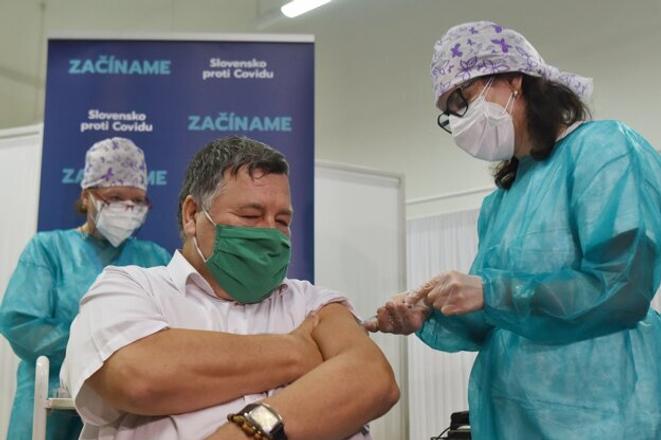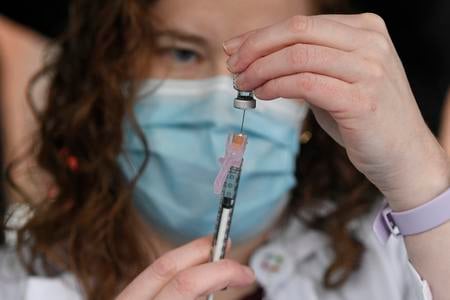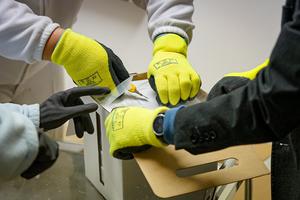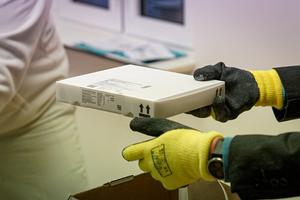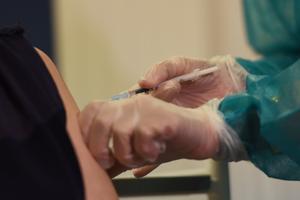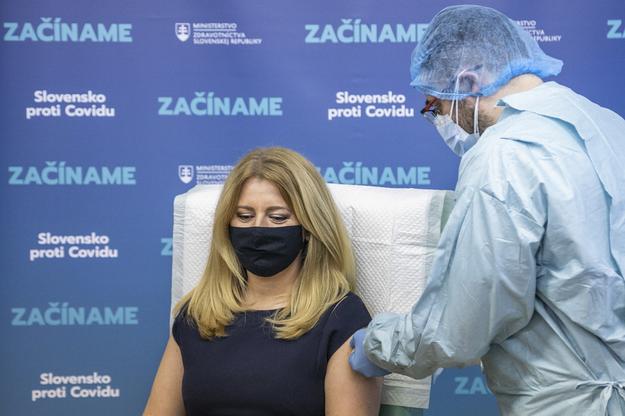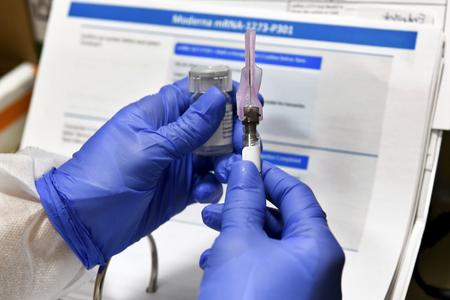Infectologist Vladimír Krčméry is the first person to receive the Pfizer/BioNTech vaccine against COVID-19 in Slovakia.
Slovakia began its vaccination rollout in the Nitra Faculty Hospital on December 26, the same day the first batch of the vaccines arrived in Slovakia.
The first ten vaccines, administered in front of cameras, went to members of the government's advisory body, top experts in immunology, infectology, and epidemiology. Among the first ten persons are also three doctors from the Nitra Faculty Hospital's COVID zone, all older than 60 years.
"Millions of people in the world have been vaccinated by now, and there is no doubt that it is safe," said epidemiologist Silvia Krištúfková before she received her COVID shot.
The vaccine was delivered to four hospitals: Nitra, Bratislava, Banská Bystrica, and Košice. All of them will roll out the vaccination by December 27.
President Zuzana Čaputová, cabinet ministers and representatives of the parliament will be vaccinated in Bratislava on Sunday.
After the European Medicines Agency (EMA) approved the Pfizer/BioNTech vaccinations on December 21 as expected, Slovakia received 10,000 vaccine doses as part of 300 million ordered by the EU on December 26.
The first batch will suffice for 5,000 people since each person needs to get two doses of the vaccine within 21 days.
There are 25 vaccination points prepared in Slovakia where the vaccine will be stored and administered. The number should gradually grow. According to earlier information, there should be 79 vaccination points around the country.
The Health Ministry plans to vaccinate 3 million people in Slovakia over the course of 2021. This roughly equals the number of people who took part in the November 1 nationwide testing.
"In which case, herd immunity will be triggered and the virus will be eliminated," ministry spokesperson Zuzana Eliášová said.
Four waves of vaccination in Slovakia:
1. healthcare staff, employees of nursing homes, critical infrastructure;
2. people older than 65 years, people suffering from chronic diseases, clients of nursing homes;
3. marginalised groups, homeless people, asylum seekers, teachers;
4. everybody older than 18 years (voluntary principle)


